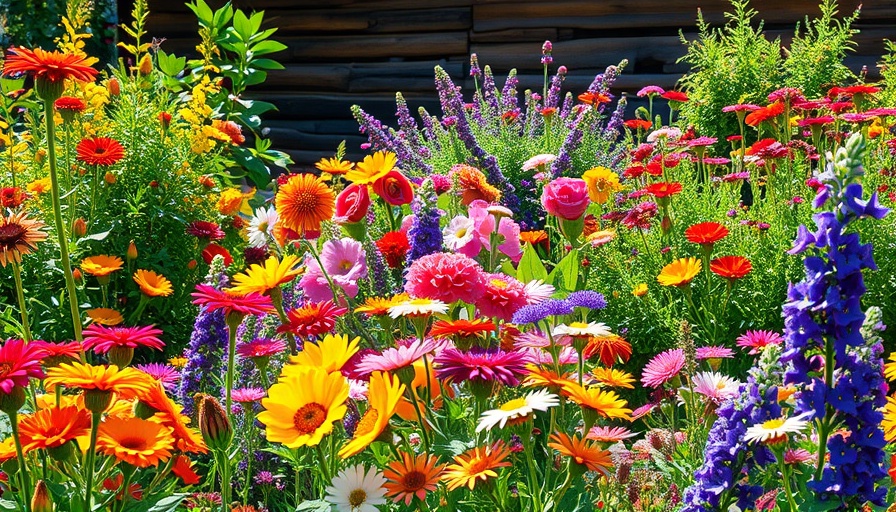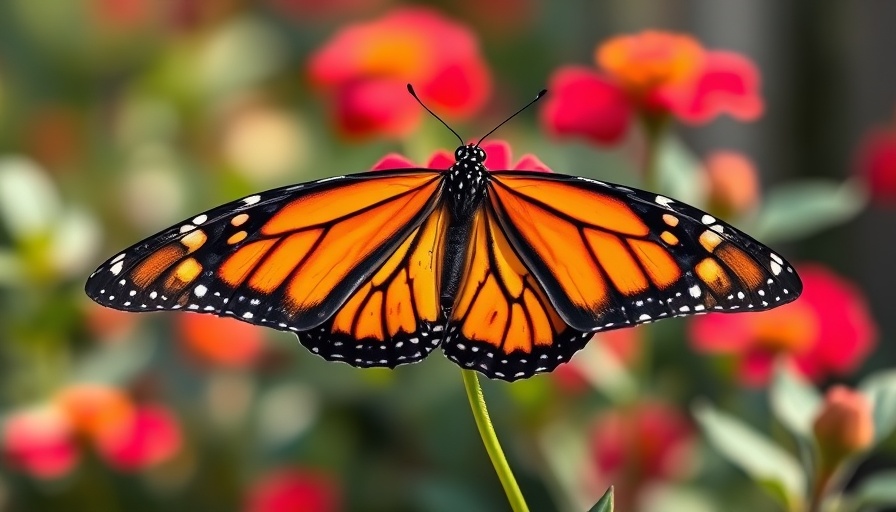
Understanding the Insect Crisis: Why Your Garden Needs Bugs
Insect populations around the globe are facing alarming declines. As shown by the recent Bugs Matter Citizen Science Survey, the UK alone has witnessed a staggering 63% drop in insect splatters since 2021. This phenomenon poses a severe threat not just to natural ecosystems but to agriculture and food security, as these small creatures play pivotal roles in pollination, pest control, and soil health. The good news is that every garden can become a haven for these essential critters.
Simple Steps You Can Take to Benefit Insects
Making small, conscious choices in your garden and lifestyle can contribute to the resurgence of insect populations. Here are several easy strategies to help:
1. Turn Off Unnecessary Lights at Night
Artificial light disrupts the natural behaviors of many insects. Moths, for example, become disoriented while trying to navigate their way around bright lights. Consider a brief commitment: turning off your outdoor lights might not just save you energy but could also help insects survive. Use timers or strategically place light sources to minimize impact.
2. Embrace Natural Garden Maintenance
Instead of raking leaves or excessively trimming your lawn, consider letting nature take its course. Decomposing leaves create a perfect habitat for various insects. Leaving some leaves untouched can reduce spider populations by 67%, and boost butterfly and beetle counts significantly. Unmowed patches of grass filled with wildflowers can add biodiversity to your backyard.
3. Plant for Pollinators Using the ‘3 x 3 x 3’ Method
Creating a pollinator-friendly garden can be a straightforward endeavor. Choose three native species for each growing season—spring, summer, and fall—and plant three of each together. This approach ensures that pollinating insects have ample food throughout the year. Also, remember that many caterpillars rely on a select few native plants, so integrating keystone species is crucial.
4. Provide Sources of Water
Insects require water to survive, especially during drought conditions. A simple water feature, like a small basin or birdbath, can provide hydration to thirsty pollinators. Just ensure that the water source is shallow enough to help prevent drowning.
The Broader Impact of Collectively Caring for Insects
These small steps toward enriching your garden can catalyze even larger changes. When individuals take responsibility for their immediate environment, it fosters a community-wide shift towards ecological awareness. Supporting insect populations not only enriches personal gardens but promotes healthier ecosystems.
Moving Forward: Be Part of the Solution
As we face global biodiversity crises, such as the one affecting our insect populations, the choices we make in our homes and gardens hold substantial weight. Embracing eco-friendly practices has the potential to revive populations of these tiny allies while creating enriched environments for all forms of life.
Ultimately, the relationship between humans and insects is symbiotic. By recognizing our role in this delicate balance, we can make strides towards an ecosystem where both people and insects thrive. Let’s take the necessary steps to nurture our environment.
 Add Row
Add Row  Add
Add 



Write A Comment